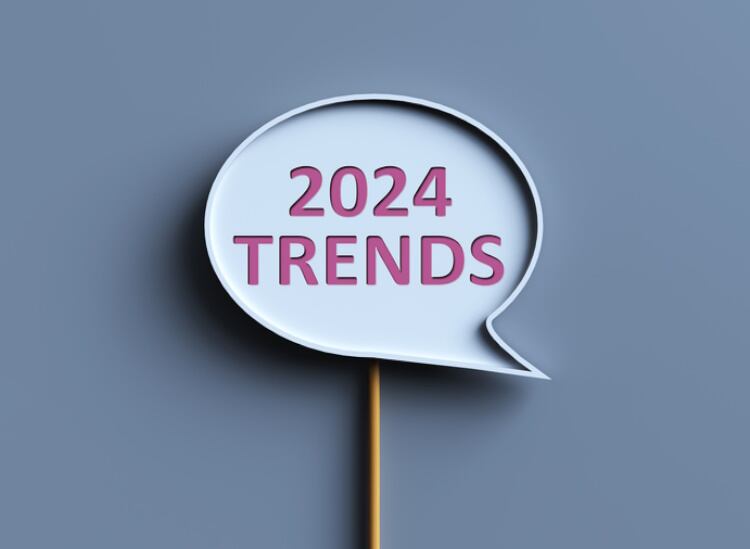It’s crucial for brands to anticipate and stay ahead of the key trends that are shaping consumer behaviours and attitudes in the coming year. According to FMCG Gurus, following several unforgiving years on budgets, health and societal norms, consumers have accepted the inevitability of uncertainty and have adopted a day-to-day focus to protect their physical and emotional wellness.
The market research has identified the top trends expected to drive business in 2024 and provides actionable recommendations for brands operating in the FMCG industry.
Maximise my value
53% of global consumers are actively looking to reduce spending on food and drink.

Consumers are feeling the impact of price inflation and are actively trying to cut down their expenses on food and drink. As they adopt recessionary spending habits, brand loyalty decreases and they become more willing to explore shopping options. Despite this, consumers will aim to minimise compromises. They will seek resourceful ways to avoid going without, such as reducing food waste and taking advantage of promotional offers.
“Brands should respond by introducing packaging innovations to extend the shelf life of products and provide personalised promotional offers that cater to individual needs,” said Kate Kehoe, marketing executive for FMCG Gurus.
“Spending reductions are expected for non-essential and convenience-driven occasions. However, consumers still desire daily treats and rewards without compromising, so it’s crucial these indulgences remain affordable and don’t result in post-consumption guilt.”
The retail sector is witnessing a growing demand for premium treats as consumers seek to recreate restaurant-quality experiences at home or enjoy small indulgences for moments of escapism.
Green horizon
8 in 10 global consumers would trust a company more if they were using regenerative farming.

Consumers are increasingly aware of the impact that food production has on climate change, recognising that agriculture itself contributes to this issue.
As such, they are expecting all producers to adopt resourceful and environmentally friendly practices that preserve biodiversity and natural resources. This scrutiny extends not only to large multinationals but also to small-scale and local producers.
“Brands must demonstrate resourcefulness throughout the supply chain to align with consumer values, and concepts like upcycled ingredients are gaining appeal due to their ability to address food waste,” said Kehoe.
“However, while consumers acknowledge the urgency of the climate crisis, sustainability claims alone do not solely drive purchasing decisions. Environmental messages can be overwhelming and the association of such products with higher prices can deter consumers.
“In reality, shopping habits are not solely driven by altruism. Therefore, brands should promote the value of environmental products by highlighting additional benefits.”
Natural harmony
59% of global consumers say they have become more attentive to ingredient listings over the last year.

Consumers are paying attention to the ingredients used in product formulations and want to make quick and informed decisions about its nutritional profile.
Therefore, an emphasis on realness and authenticity is strongly valued. Consumers are also looking out for products they perceive as natural, as they believe these are better for both their own wellbeing and the environment.
“This drive for authenticity has led to an increased demand for free from offerings and streamlined ingredient lists,” said Kehoe, noting, however, that it’s important to ensure this ‘simplification’ is not misunderstood as a cost-cutting exercise.
Strive for happiness
57% of global consumers say they have looked to improve their mental wellbeing over the past year.

Rising prices and the fast-paced nature of the post-pandemic world have had a significant impact on consumers’ emotional wellbeing. As a result, a large number are actively searching for ways to improve their mood.
“When asked about their definition of good mental wellbeing, consumers consistently list happiness as a fundamental aspect, meaning they’re willing step back from the pressures of daily life to reassess their priorities, such as better sleep habits and healthier eating patterns,” said Kehoe.
My plate, my profile
28% of global consumers say they have made greater efforts to use apps to monitor their diet and lifestyle closely.

The popularity of health monitoring apps continues to grow as individuals recognise the importance of their DNA on their wellbeing.
This trend paves the way for the next wave of innovation in the health and wellness market, that is, personalised customisation based on genetic sampling. This is particularly relevant given the growing understanding of the importance of a healthy gut microbiome.
“While questions may arise regarding the accuracy and ethical implications of such personalisation, consumers will expect technological advancements to enable real-time health monitoring and offer tailored solutions that cater to their specific needs and goals,” said Kehoe.


